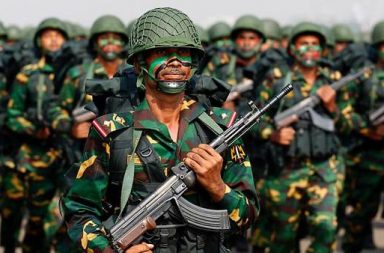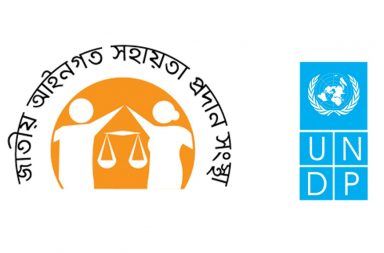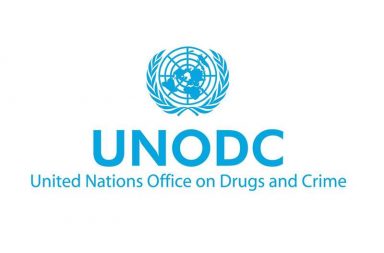By Jalal Uddin Ahmed
A rare compilation which travels through the illuminating journey of the top Judges of Bangladesh.
JUSTICE ABU SADAT MOHAMMED SAYEM
In Office : 16 December,1972 to 05 November,1975
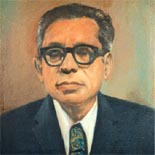
Justice Abu Sadat Mohammed Sayem (March 29, 1916 – July 8, 1997) was the first Chief Justice of Bangladesh. He was appointed on December 16,1972 by the then President Abu Sayeed Chowdhury. He remained in the post till November 5, 1975. In the aftermath of the coups on August 15 and November 3 in 1975, he took over as the 5th President of Bangladesh and also the Chief Martial Law Administrator after the resignation of Khandaker Mushtaq Ahmed resigned. He stayed as President & CMLA till 1977 when he resigned due to ill health and was succeeded by Ziaur Rahman.
Justice Sayem was a member of both the bar and bench in the erstwhile East Pakistan. After 1947, he shifted his practice from Kolkata to Dhaka and worked as a junior under Sher-e-Bangla A.K. Fazlul Haq. After independence, he was appointed the Chief Judge of the High Court in 1972 and after the establishment of the Supreme Court he was appointed its first Chief Justice.
JUSTICE SYED A.B. MAHMUD HOSSAIN
In Office: 18 November,1975 to 31 January,1978
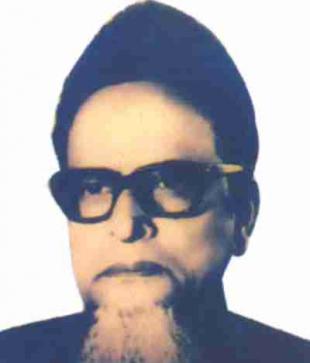
Justice Syed A.B. Mahmud Hossain (1916-1982) took oath as the Chief Justice of Bangladesh after Justice Sayem took the charge of the presidency. A career that also includes stint as the Principal of Darool Ulum Ahsania Madrasah of Dhaka, he was also the Government Pleader of the Habiganj Sub-Divisional Bar from 1943 to 1948. An attorney in the Federal Court and later a Senior Advocate in the Pakistan Supreme Court, he was also part of both the bar and bench like his predecessor in East Pakistan. After independence,he first was a Judge of the High Court first and later a Judge of the Appellate Division.
As a Judge he had delivered many judgments making important pronouncements on the points of law. In one of his pronouncements in the case of Mahbub Hossain, he declared that the employees of a statutory corporation are neither in the service of the Republic nor are to be treated under the general principle of master and servant, but their service has a public character regulated by statutory provisions, and they cannot be dismissed from service without giving them an opportunity to be heard.
JUSTICE KEMAL UDDIN HOSSAIN
In Office: 1 February,1978 to 11 April,1982
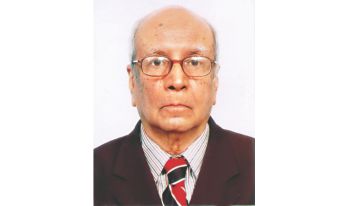
Justice Kemal Uddin Hossain (d.2013) was the Chief Justice of Bangladesh from 1978 to 1982. He was also the first Chairman of the Law Commission. He enrolled in Calcutta University’s Law college and took the Bachelor of Law degree. He passed the Chamber’s examination from the Calcutta High Court, topping the list, and was awarded the Sir Rashbehary Ghosh Memorial medal. He and his family migrated from Kolkata in 1950’s after communal riots. Even after retirement from his public duties he worked for The Bangladesh Society for the Enforcement of Human Rights – an organization which worked mainly for minority rights.
JUSTICE FAZLE KADERI MOHAMMED ABDUL MUNIM
In Office: 12 April,1982 to 30 November,1989
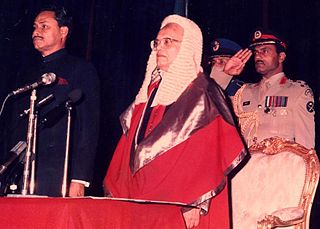
Justice Fazle Kaderi Mohammed Abdul Munim (1924-2001) was the Chief Justice of Bangladesh from 1982 to 1989. He obtained his LL.M and PhD degree from the University of London. During the pre-independence era, he was appointed the Advocate General of East Pakistan in 1970. After independence he was appointed as a judge in the High Court and also worked on the drafting of the Constitution.
Justice Munim was appointed chairman of the Bangladesh Law Commission in 6 August 1996, but he had to resign from this post on 31 December 1997 on health ground. He has authored two books, Rights of Citizens under the Constitution and Law (1975), Legal Aspects of Martial Law (1989).
JUSTICE BADRUL HAIDER CHOWDHURY
In Office: December 1,1989 to December 30,1989
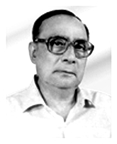
Justice Badrul Haider Chowdhury (1925-1998) was the Chief Justice of Bangladesh for just a month but had a very long and illustrious career. Obtaining his law degree from the University of Dhaka in 1951,he was awarded the Bar-at-Law degree from Lincoln’s Inn. He was a very active practitioner in the Dhaka High Court from 1956. He was appointed as a Judge of the said court in 1971. After independence, he was also appointed a judge in the High Court in 1971 and appointed a judge in the Appellate Division in 1978. As a judge, his decision in the 8th Amendment case is regarded by constitutional lawyers as a landmark in the legal history of the country.
Justice Badrul Haider Chowdhury was also active in social work. He was chairman of the Diabetic Association of bangladesh in 1972, and chairman of the Cheshire Foundation Home Management Committee (1980-1998). After retirement he became President of the Bangladesh Society for Enforcement of Human Rights. Badrul Haider Chowdhury wrote a book of reminiscence titled Those Were the Days (1956) which earned him reputation as a writer. His other works include The Long Echoes (1990) and The Evolution of the Supreme Court of Bangladesh (1991).
JUSTICE SHAHABUDDIN AHMED
In Office: January 14,1990 to January 31,1991
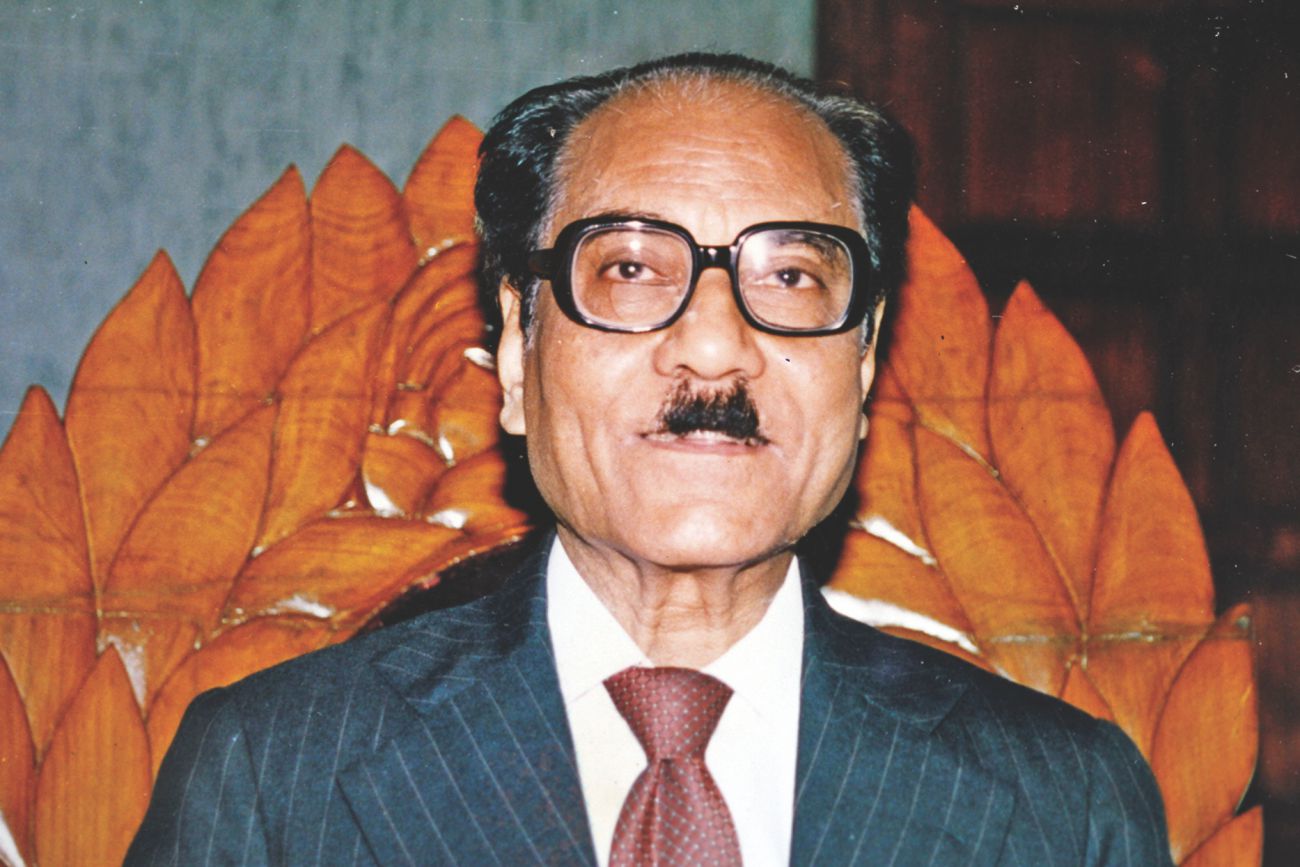
Justice Shahabuddin Ahmed (b. 1930) was the Chief Justice of Bangladesh and also served as the President twice; once in an interim role after the 1990 mass uprising which saw the overthrow of H.M. Ershad and later a full five year term from 1996 to 2001. A long career in multiple posts in the civil service of Pakistan, Justice Shahabuddin served as District & Sessions Judge and Additional District & Sessions Judge in different districts. In 1967 he was appointed the Registrar of Dhaka High Court. After independence he was appointed as a Judge of the High Court and later in 1980 he was appointed as a Judge in the Appellate Division. While he was Judge of the High Court Division he was deputed as the Chairman of the Labour Appellate Tribunal for a while.
A great number of his verdicts have been reported in the Dhaka Law Reports, Bangladesh Legal Decisions and Bangladesh Case Reports. Some of his judgements on service matters, election disputes and labour-management relations have been highly appreciated. His verdict on the 8th Amendment of the Constitution of Bangladesh was hailed as a landmark in the constitutional development of the country.
Justice Shahabuddin was the chairman of the Commission of Enquiry constituted to enquire into the causes of police firing on the agitating students of Dhaka University in mid-February of 1983 causing death of several students and injury to many more. But his report submitted after extensive enquiry was never made public by the then government. He was Chairman of the National Pay Commission in 1984 when upward revision of pay-scales was made on the basis of his report. He served as Chairman of Bangladesh Red Cross Society from August 1978 to April 1982. He attended the International Appellate Judge’s Conference held in Washington DC in September 1990.
JUSTICE MUHAMMED HABIBUR RAHMAN
In Office: February 1,1995 to April 30,1995
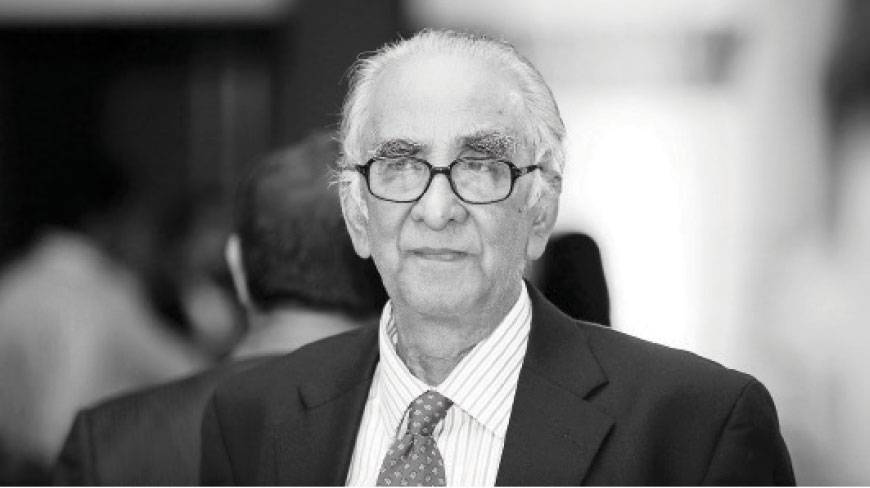
Justice Muhammed Habibur Rahman (1928-2014) was an academic, a writer, a lawyer and a jurist. A long and illustrious career spanning many places, Habibur Rahman after serving as the Chief Justice of Bangladesh also served as the Chief Advisor of the Caretaker Government which oversaw the Parliamentary Elections of June 1996.
Habibur Rahman began his career as a Lecturer in History in Dhaka University in 1952. Later he joined Rajshahi University where he subsequently held the office of Dean of the Faculty of Law (1961) and of Reader in History (1962-64). Habibur Rahman changed his profession in 1964 and joined the Dhaka High Court bar. In his legal career he held the offices of Assistant Advocate General (1969), vice president of High Court Bar Association (1972) and member of Bangladesh Bar Council (1972).He was appointed a judge of the High Court in 1976, and judge of the Appellate Division of the Supreme Court in 1985. He was the Acting Chief Justice in 1990-91 and was made chief justice of Bangladesh in 1995. His juristic competence is demonstrated in his opinions and interpretations as pronounced in many of the Bangladesh Supreme Court’s decisions concerning vital issues, such as, admiralty jurisdiction, amendment of the Constitution, citizenship, habeas corpus, administrative tribunals and court jurisdictions.
A thoughtful writer, Habibur Rahman had interest in varied subjects. Some of his literary and other noted publications are as follows: Law of Requisition (1966), JathaShabda (1974), RabindraPrabandheySanjna O ParthakyaBichar (1983), Matri-bhasharSvapakshey Rabindranath (1983), Qoran-Sutra (1984), GangariddhiThekey Bangladesh (1985), Bachan O Prabachan (1985), Rabindra-RachanarRabindra-byakhya (1986), Rabindra-Bakyey Art Sangeet O Sahitya (1986), Amara kiJabo-naTaderKachheyJaraShudhuBanglai Katha Baley (1996), Bangladesh DirghajeebiHoke (1996), On Rights and Remedies, The Road Map to Peace but Nowhere to go.
Justice Rahman was awarded Bangla Academy Prize for Literature in 1984, Ekushey Padak in 2007 and a number of awards from other concerns. He was a Fellow of the asiatic society of bangladesh; Fellow of the Bangla Academy; Honorary Bencher, Lincoln’s Inn; and Honorary Fellow, Worcester College of Oxford University.
JUSTICE ATM AFZAL
In Office: May 1,1995 to May 31,1999
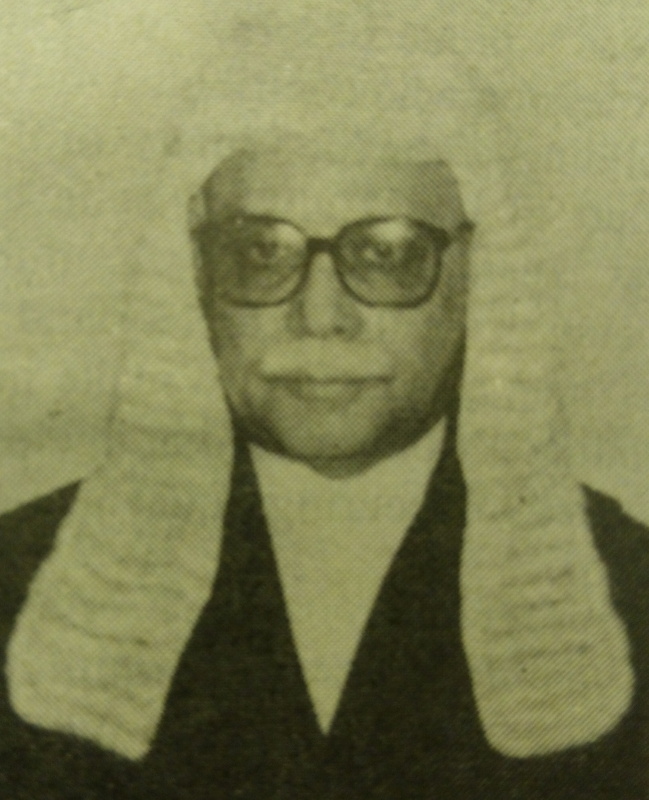
Justice Abu Taher Mohammed Afzal was the 8th Chief Justice of Bangladesh. He also served as the Chairman of the Law Commission from 2000 to 2003. He was the Public Prosecutor in the trial of Lt. Colonel Abu Taher.
JUSTICE MUSTAFA KAMAL
In Office: June 1,1999 to December 31,1999
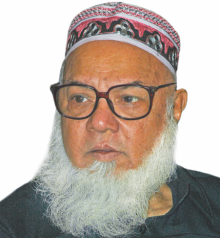
Justice Mustafa Kamal (1933-2015) was the 9th Chief Justice of Bangladesh. Regarded as the “Father of ADR in Bangladesh” he pioneered the Alternative Dispute Resolution(ADR) in Bangladesh. In 1950, Justice Kamal got himself admitted in the University of Dhaka. Kamal studied Political Science and obtained his B.A. (Hons) and M.A. in the year 1953 and 1954 respectively, he achieved those degrees securing `first class first’ in both. He also stood first among all candidates in the Arts faculty and was awarded a special scholarship from the Pakistan Government.In September 1955, he went to England where he obtained a Masters in Economics in 1958 from the London School of Economics (LSE). While he was studying for his Masters, Mr. Kamal joined the famed Lincoln’s Inn (London, UK) and was called to the Bar in 1959.
He returned to Dhaka after obtaining his Bar-at-Law degree, and began his professional career as a lawyer in the same year. In 1961, he also joined the Department of Law in the University of Dhaka as a part-time Lecturer, and continued until 1968. He also served as the Legal Advisor to RAJUK (then known as the DIT) at that period of time. The Government of Bangladesh appointed him as an Additional Attorney General in 1976. In 1977, he was appointed as the Advocate General of the High Court. He was appointed as a Judge of the High Court Division in 1979 and later became a Judge of the Appellate Division in 1989. After his retirment, Justice Kamal joined the World Bank as a Consultant from Bangladesh. He helped introduce Alternative Dispute Resolution (ADR) in Bangladesh serving as the overall coordinator of the Legal and Judicial Capacity Building Project (L&JCBP) of the World Bank. He also served as the Chairman of the Law Commission from 2005 to 2007.
Justice Kamal is widely known for his landmark judgement in the famous Masdar Hossain case which led to the separation of the judiciary from the executive in 2007. In the judgement, Justice Kamal clearly defined and explained how the judiciary should be separated and what steps should be taken in a 12 point directive. Mostafa Kamal also gave another landmark judgement in the case of Dr. MohiuddinFarook Vs Bangladesh where he redefined the provisions of “locus standi” – leading the Appellate Division to take a more liberal stance. He also overruled the decision of the High Court Division in the famous case of Hefzur Rahman Vs Shamsunnahar Begum and stated his disappointment at the High Court Division’s judgement which ignored basic Islamic knowledge, principles and philosophy.
JUSTICE LATIFUR RAHMAN
In Office: January 1, 2000 to February 28, 2001
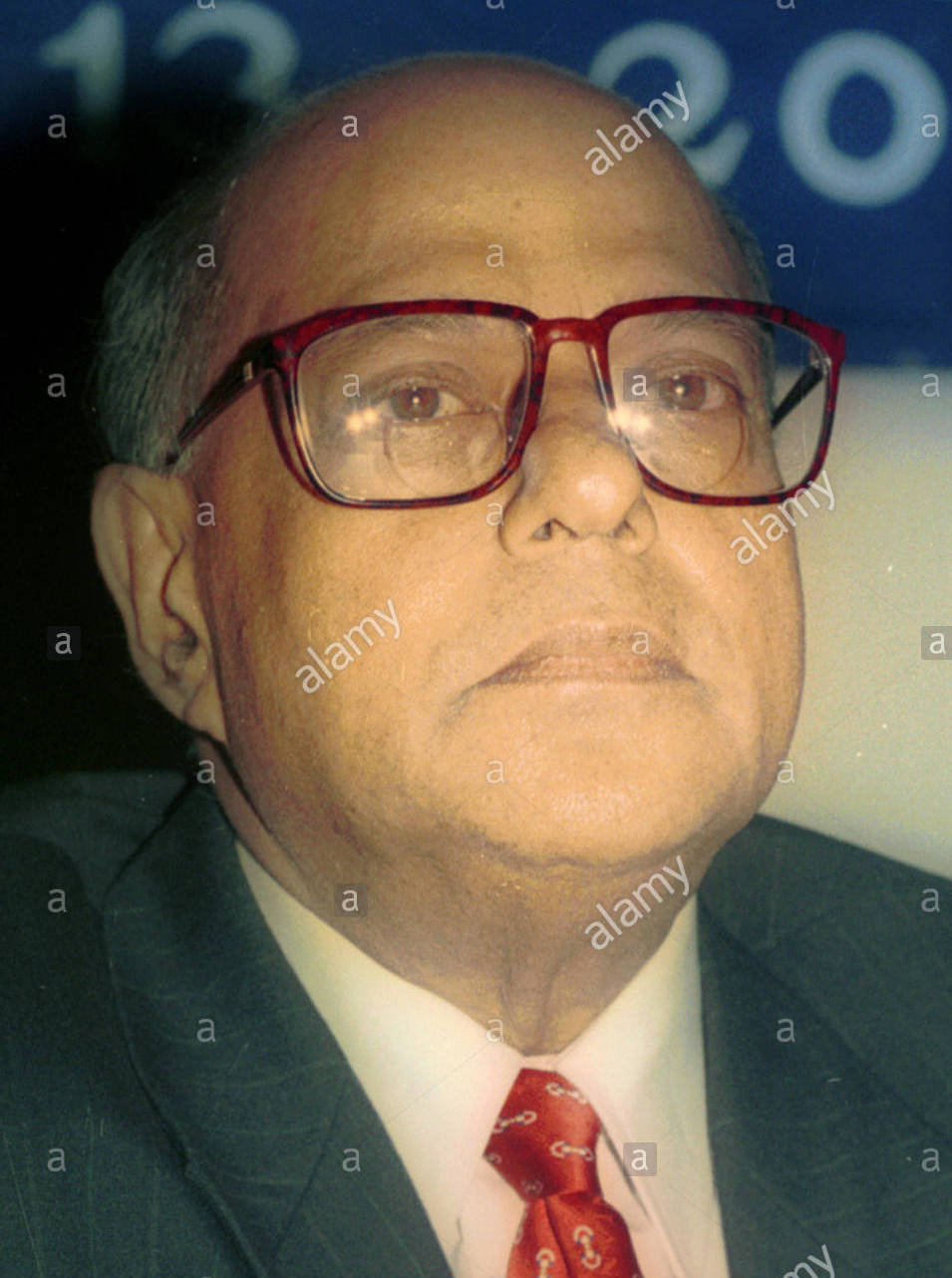
Justice Latifur Rahman (b. 1936) served as the Chief Justice of Bangladesh and also the Chief Advisor of the Caretaker Government – conducting the elections of 2001. Latifur Rahman obtained BA Honours (1955) and MA (1956) in English Literature from the University of Dhaka. Subsequently, he completed LLB from the same university. At the beginning of his professional career, Latifur Rahman served as a Lecturer at the Quaid-e-Azam College (now Shaheed Suhrawardy College) and Jagannath College.He started his profession as a lawyer at the Dhaka High Court after being enlisted at the bar in 1960. In 1979, Latifur Rahman was appointed additional judge at the High Court Division of the Supreme Court, where he became a permanent judge in 1981. Latifur Rahman joined as a judge at the Appellate Division of the Supreme Court on 15 January 1991 and was elevated to Chief Justice on 1 January 2001. Latifur Rahman described the experience of the 87 days of his administration as the head of the government in a book Tattabadhaya kSarkarer Dinguli O Amar Katha. Justice Latif passed away on June 6, 2017.
JUSTICE MAHMUDUL AMIN CHOWDHURY
In Office: March 1, 2001 to June 17, 2002

Justice Mahmudul Amin Chowdhury was the 11th Chief Justice of Bangladesh. Many years after his retirement, he headed the Bangladesh Cricket Board tribunal to investigate and try the match-fixing scandal surrounding the Bangladesh Premier League. During his tenure as Chief Justice, he had suggested the appointment of a Judge on an “ad-hoc” basis to try the Bangabandhu Murder Case as due to the political situation at that time many judges were “embarrassed” to try the case – but the government didn’t heed to his suggestion.
JUSTICE MAINUR REZA CHOWDHURY
In Office: June 18,2002 to June 22,2003
Justice Mainur Reza Chowdhury(1938-2004) was the 12th Chief Justice of Bangladesh. He was appointed by President Bodruddoza Chowdhury succeeding Justice Mahmudul Amin Chowdhury. Justice Mainur was appointed as a Judge of the High Court Division in 1990 and in the Appellate Division in 2000 after practicing in the Supreme Court since 1975.
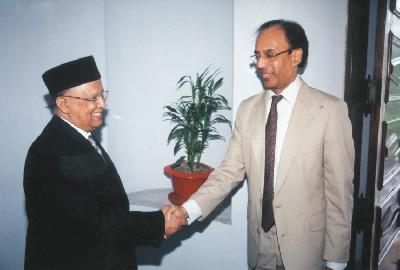
J. Mainur Reza Chowdhury (L) and J. K M Hasan (R)
JUSTICE KHANDAKER MAHMUDUL HASAN
In Office: June 23, 2003 to January 22, 2004
Justice Khandaker Mahmudul Hasan (b. 1939), better known as KM Hasan was a lawyer, a diplomat and a jurist. He did his BA (Honours), MA and LLB in Dhaka, LLM in London and is a Barrister-at-Law from Lincoln’s Inn. Enrolled as a Supreme Court advocate in 1963, Justice Hasan was elevated as a judge to the High Court in 1999 and the Appellate Division on January 20, 2002. He served as Ambassador to Iraq from 1980 to 1982. He had been involved with different organizations, including Bangladesh Institute of Law and International Affairs and American Bar Association.
JUSTICE SYED JILLUR RAHMAN MUDASSIR HOSSAIN
In Office: January 23, 2004 to February 28, 2007
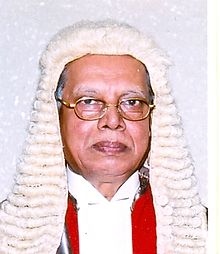
Justice Syed Jillur Rahman Mudassir Hossain (b.1940) was the 14th Chief Justice of Bangladesh. He is the son of Syed Md. Mumidul Husain, one of the Senior Advocates of Habigonj District Bar and nephew of former Chief Justice Syed A.B. Mahmud Hossain. He graduated and obtained his law degree from Dhaka University in 1962 and 1964 respectively. He enrolled as an Advocate of East Pakistan in 1965 and later enrolled as an Advocate of the Appellate Division in 1980. He was a part-time Lecturer in the Central Law College, Dhaka from 1966 to 1978. He was the Examiner and Question Setter of the Department of Law of the University of Dhaka. He was a reporter of Bangladesh Law Reports from 1973 to 1977. In 1977 he was appointed as an Assistant Attorney General for Bangladesh and after two years, he was promoted to the Deputy Attorney General.In 1992, he was elevated to the bench and sworn in as a Judge of the High Court Division. He was appointed as a Judge of the Appellate Division in 2002.
JUSTICE MOHAMMED RUHUL AMIN
In Office: March 1,2007 to May 31,2008
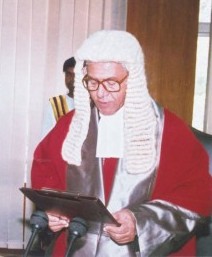
Justice Mohammed Ruhul Amin was the 15th Chief Justice of Bangladesh. He was appointed by President Iajuddin Ahmed. He is best known for the judgement laid out where the Appellate Division barred the High Court Division from granting bail to persons arrested under the provisions of the state of emergency.
JUSTICE M M RUHUL AMIN
In Office: June 1,2008 to December 22,2009
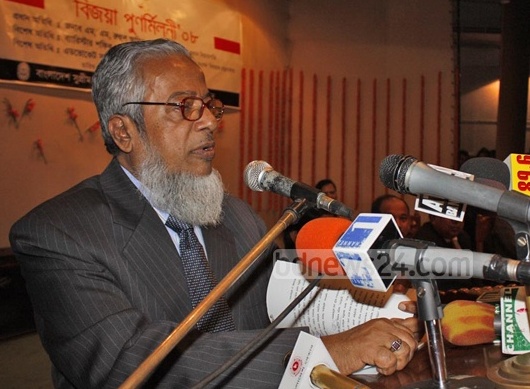
Justice M M RuhulAmin(1942-2017), an alumnus of Dhaka University passed his LL.B in 1966. Joining the judicial service in 1967, he became a District Judge in 1984 and served in this role in four different districts. Justice MM Ruhul Amin was elevated as a judge of the Appellate Division on July 13, 2003. He was appointed an additional judge of the HC on February 10, 1994 and his service was confirmed on February 8, 1996. He also served as the Chairman of the Judicial Services Commission since 2004 before he became Chief Justice.
JUSTICE TAFAZZUL ISLAM
In Office: December 23, 2009 to February 7, 2010
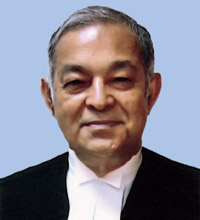
Justice Tafazzul Islam (b. 1943) was called to the Bar by The Lincoln’s Inn in 1967. He enrolled as an Advocate of the East Pakistan High Court in 1969 and later in 1980 became an Advocate of the Appellate Division. In 1984 he was appointed a Judge in the High Court Division and later in the Appellate Division in 2003. While a Judge of the High Court Division, he also held the offices of Chairman of the Enrollment Committee of the Bangladesh Bar Council, from 2004 to 2008, and of the Chairman of the Bangladesh Judicial Service Commission during 2008-9.
He was the principal author of several landmark judgments, laying the foundations for the development of laws and setting significant precedents. These include the judgments on repeal of the Fifth Amendment of the Constitution of Bangladesh, upholding the judgment of the High Court Division sentencing the killers of Sheikh Mujibur Rahman , enlarging the powers of the High Court Division under The Companies Act (Bangladesh), 1994 in protecting the interests of minority shareholders, and reversing the decision of the High Court Division to allow the construction of markets in violation of the provisions of environmental laws.
As an Advocate, Justice Tafazzul had been actively associated with the teaching profession. He was an Adjunct Faculty in the City Law College. He also taught at the Institute of Business Administration and was an Examiner in Law in Dhaka University. As a member of the Corporate Law Commission of Bangladesh, he actively participated in the drafting of Bank Company Act, 1991 and the Companies Act (Bangladesh), 1994.
Justice Tafazzul while doing his Bar Vocational Course was also a news presenter on BBC.
After his retirement, Justice Tafazzul along with Justice Awlad Ali were the first ever Bangladeshi judges to be appointed as Judges on the Permanent Court of Arbitration at Hague of Netherlands for resolving international disputes.
JUSTICE MOHAMMED FAZLUL KARIM
In Office: February 8,2010 to September 30,2010
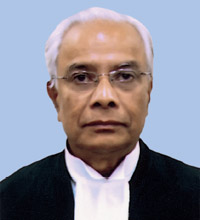
Justice Mohammed Fazlul Karim (b.1943),born into the family of Abdul Karim Shahitya Bisharad enrolled in the Chittagong Bar in 1965 and joined the Dhaka High Court in 1970. He enrolled as an advocate of the Appellate Division in 1979 and was elected secretary of the Supreme Court Bar Association in 1982. Justice Fazlul Karim was elevated to the position of additional judge of the High Court Division in 1992, and a regular judge of the court in 1994. He was elevated to the position of judge of the Appellate Division in 2001.
He worked as Chairman of Court Administration and Court Management Scheme of Capacity Building Project in 1996, Asia Pacific Advisory Forum on “Judicial Education on Gender Equality Issue”, and Scheme for Mediation and Alternative Dispute Resolution under the aid of the USA.
JUSTICE ABM KHAIRUL HAQUE
In Office: October 1,2010 to May 17,2011
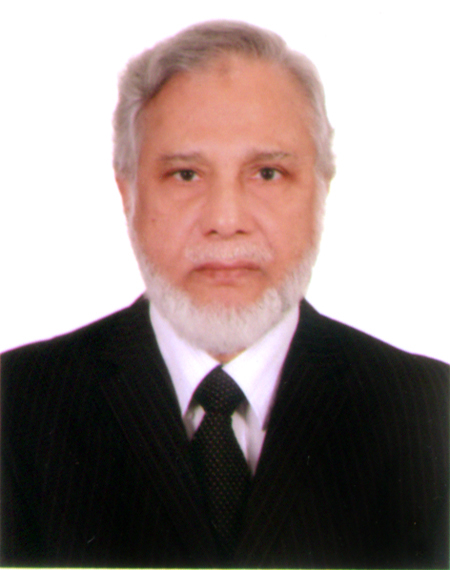
Justice ABM Khairul Haque (b.1944), presently serving as the Chairman of the Law Commission obtained his LLB degree from Dhaka University and Bar-at-Law from Lincoln’s Inn. Khairul was enrolled as an advocate of the district court, the High Court Division and the appellate division of Bangladesh Supreme Court in the year 1970, 1976 and 1982 respectively.He was elevated to additional judge of the High Court Division in April 1998 and appointed regular judge of the same division in April 2000.He was promoted to senior judge in the Appellate Division in 2010.Later, he was appointed chairman of Bangladesh Judicial Service Commission (BJSC) in 2011.
Justice Khairul Haque delivered a number of landmark judgements during the period of his judgeship in the High Court Division.He upheld a lower court verdict that had sentenced 15 accused killers of Bangabandhu Sheikh Mujibur Rahman and his family members.A division bench of the High Court headed by him ruled that it was Bangabandhu Sheikh Mujibur Rahman who had at first declared the independence of the republic on March 26, 1971.The bench of Justice KhairulHaque issued verdicts declaring 5th amendment of the constitution illegal for saving environment including four rivers–Buriganga, Turag, Balu and Shitalakhya–around the capital city from pollution, and for protecting historical places relating to the country’s liberation war.
JUSTICE MUZAMMEL HOSSAIN
In Office: May 18,2011 to January 16,2015
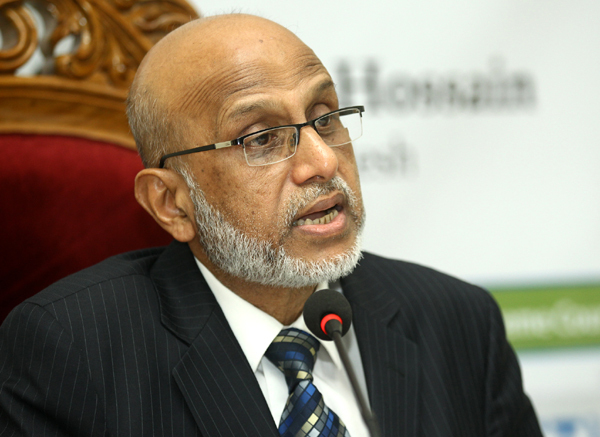
Justice Muzammel Hossain (b.1948) was a lawyer,an academic and a jurist. He obtained his LLB degree in 1970, MA degree in Journalism in 1971 from University of Dhaka (DU), LLM degree from University of Sheffield in 1977 and Barrister-at-Law from Lincoln’s Inn in 1980. Justice Muzammel also worked as a law faculty at University of Miadiguri in Nigeria, a professor at City Law College, Dhanmondi Law College and Bhuiyan Academy in Dhaka, and an examiner of both LLB (Hons) and LLM Examinations at DU. He was enrolled as an advocate of the District Court and the High Court (HC) Division of SC in February, 1971 and 1978 respectively. Later he was elevated to the post of judge of the HC Division on April 27, 1998, and judge of the Appellate Division on July 16, 2009.
During his judgeship period in the Appellate Division, Justice Muzammel delivered a number of landmark judgments including those on the killing of Bangabandhu Sheikh Mujibur Rahman and the 5th and 13th amendments to the constitution.
JUSTICE SURENDRA KUMAR SINHA
In Office: January 16,2015 To November 11,2017
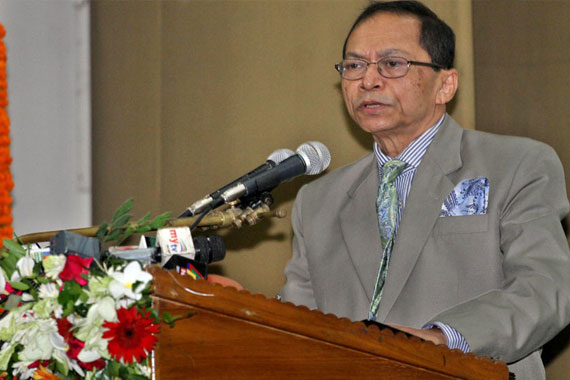
Justice Surendra Kumar Sinha(b.1951) better known as S.K. Sinha was the 21st Chief Justice of Bangladesh. He is the first non-Muslim and non-Bengalee judge to ever hold the position. Hailing from the district of Sunamganj, S.K. Sinha enrolled as an Advocate in the Sylhet District Court in 1974. He enrolled as Advocate in the High Court Division and the Appellate Division in 1978 and 1990 respectively. S.K.Sinha was elevated as a Judge of the High Court Division in 1999 and as Judge of the Appellate Division in 2009. He assumed the office of the Chairman of the Bangladesh Judicial Service Commission in 2011 and the office of the Chief Justice in 2015. Justice Sinha was the author judge in the landmark 16th Amendment case. His observations in the judgement raised huge controversies and after much drama and allegations of corruption,financial irregularities and moral terpitude SK Sinha resigned from his office on November 11,2017.
JUSTICE MOHAMMAD ABDUL WAHAB MIAH (Acting as the Chief Justice)
In Office: October 3, 2017 to February 2, 2018

Mohammed Abdul WahhabMiah has had a long and illustrious career both in the bar and bench. He enrolled as an Advocate in the District Court in 1974 and later in the High Court Division in 1976. He became an Advocate-on-Record in 1982 and became a Senior Advocate in 1999.
He was appointed as an Additional Judge of the High Court Division in 1999 and was given tenure in 2001. He was elevated to the Appellate Division in 2011. Since October 3,2017 Mohammed Abdul WahhabMiah has been performing the functions of the Chief Justice of Bangladesh.
Abdul WahhabMiah has given multiple landmark judgements including that of the 16th Amendment and the dissenting judgement in the 13th Amendment case. He resigned from his position in the Appellate Division on February 2,2018.
Justice Syed Mahmud Hossain
In Office: February 2, 2018 to till date
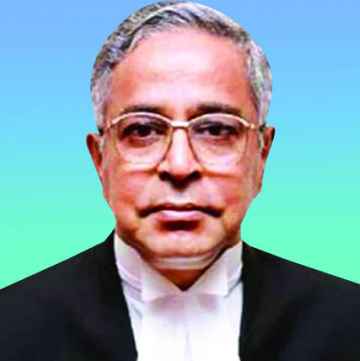
Syed Mahmud Hossain is the 22nd Chief Justice of Bangladesh. After obtaining his B.Sc and LL.B degree he then completed the “Commonwealth Young Lawyer’s Course” from the School of African and Oriental Studies and Institute of Advanced Legal Studies from the University of London.
Syed Mahmud Hossain started practising law in 1981 at the District Court. In 1983, he got enrolled in the High Court Division. He was appointed as a Deputy Attorney General in December 1999. He became an additional High Court judge in February 2001. In 2003, he was made a permanent High Court judge. He was elevated to the Appellate Division in 2011.
______________________________________________________________________________
Jalal Uddin Ahmed is currently studying in the LL.B (Hons) program in the University of Dhaka. Got very interested in the subject by seeing the show Boston Legal. A realist in life,when it comes to the world of law,I like to think myself as a naturalist. My ultimate aim is to become the Chief Justice of Bangladesh. Plan B is to become a lawyer like Denny Crane.”
